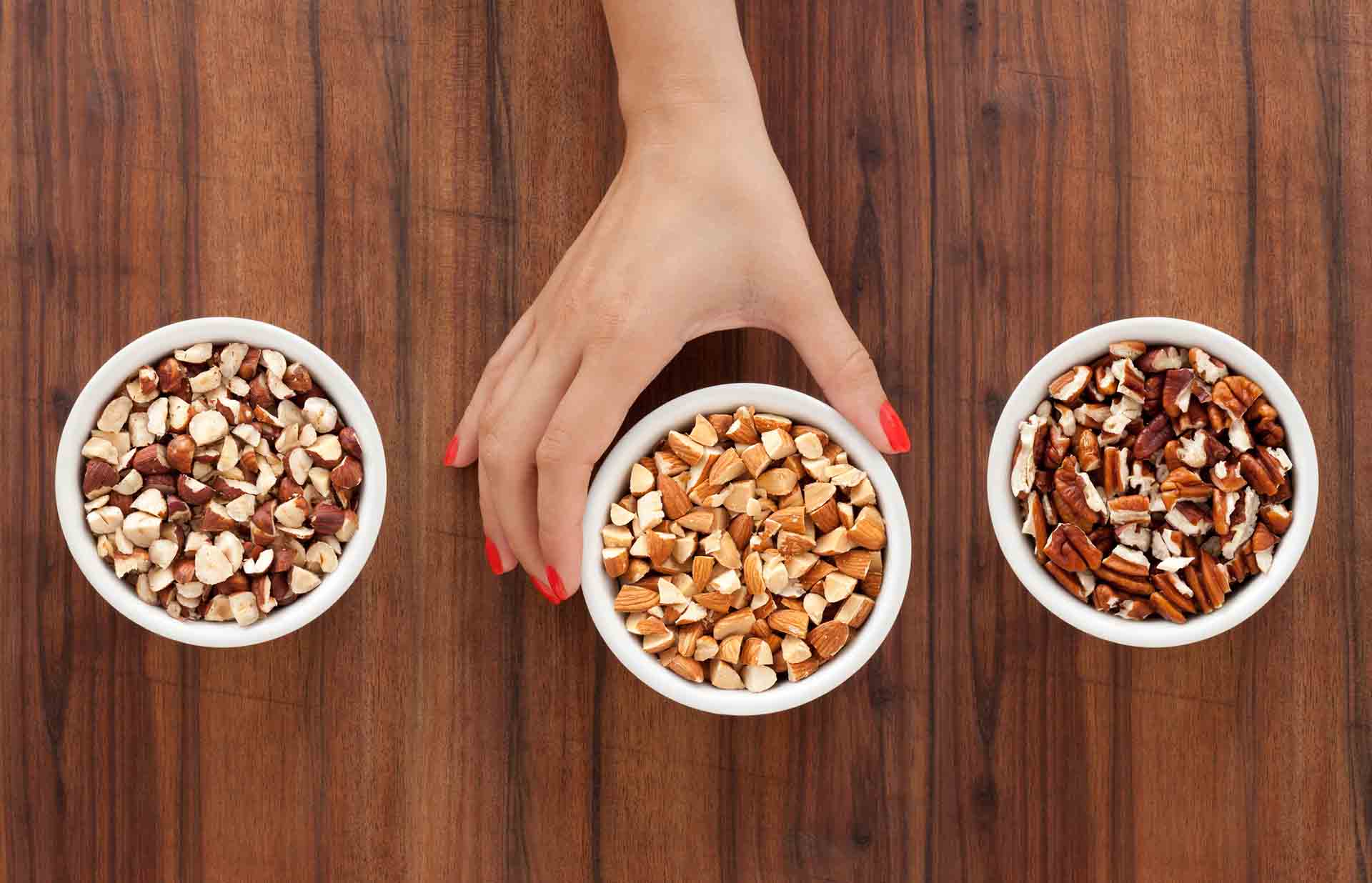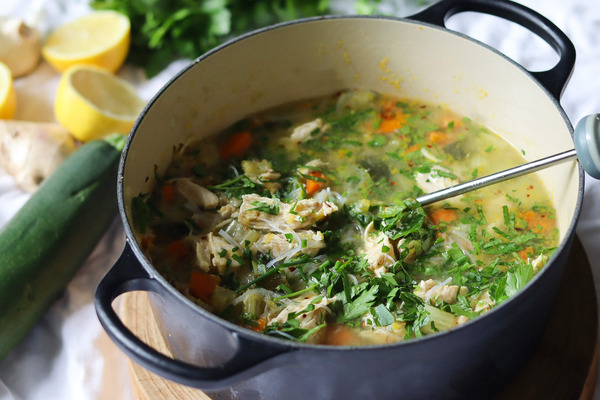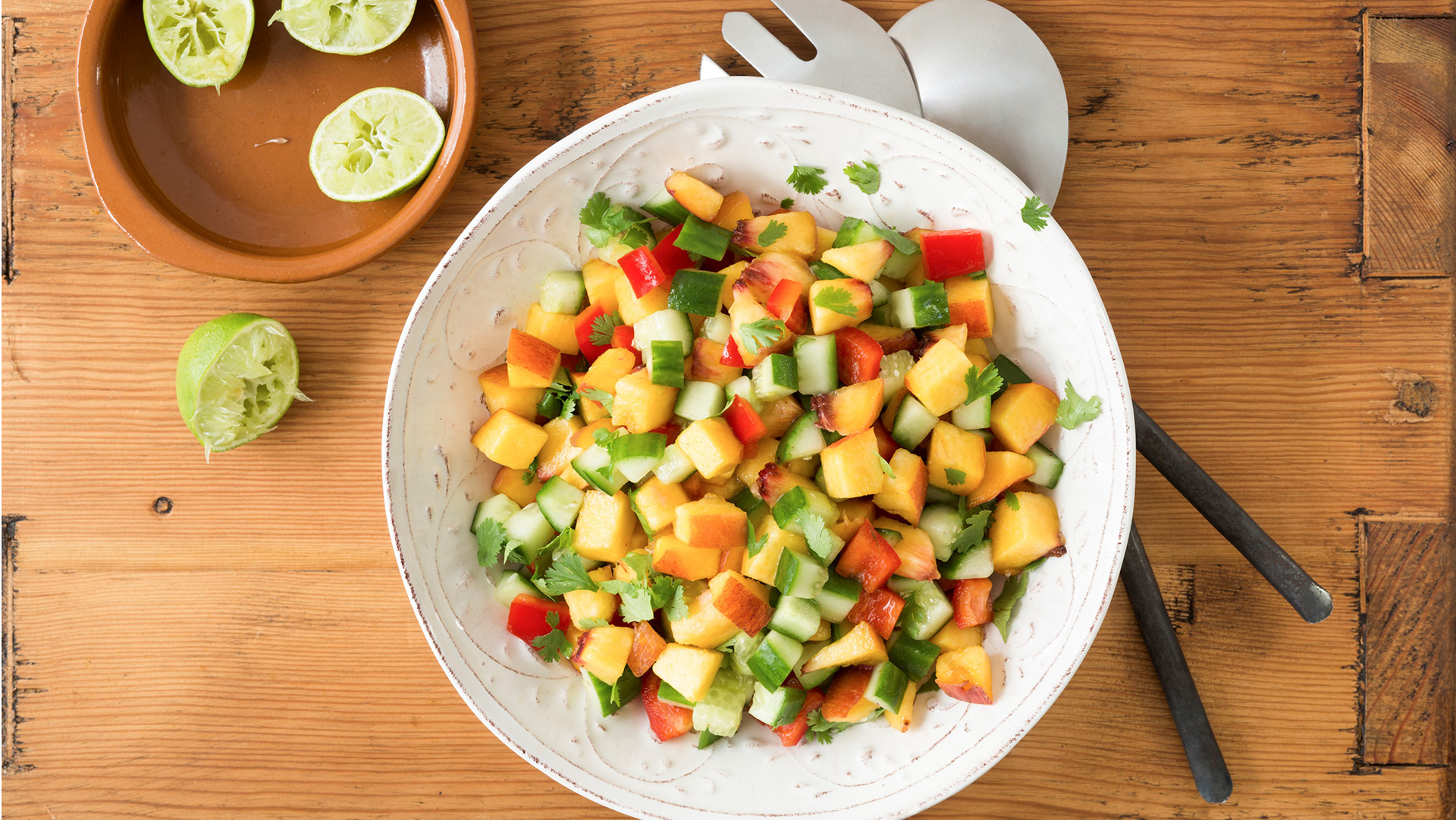-
When you think of nuts, you may picture the pub with a beer. But that small bowl of delicious treats may be better for you than you know. Nuts are only starting to be understood as an important part of the diet, not only for a healthy heart and waistline but a healthy mind too.
What the fat?
Nuts are often given a bad rap because of their fat content. The good news is that the fats found in nuts are healthy fats for your body, called polyunsaturated and monounsaturated fats. These types of fats can help your heart and brain work better, and can even help you to maintain a healthy weight.
Polyunsaturated fats can boost your brain by supporting the structure of the cells and helping your brain send signals. Walnuts also contain a large amount of a plant form of omega-3 fat (known as ALA or alpha linoleic acid), which is beneficial for brain health.
Vitamin goodness
The positive nutritional profile of nuts doesn’t end there. Nuts of are full of vitamins and minerals that support healthy bones, energy production, brain health and heart function. These include B vitamins, calcium, iron, manganese, copper, magnesium, potassium and zinc.
Nuts also contain an amino acid called arginine. This helps your blood vessels stay dilated and can help prevent clots in your blood. The antioxidants within nuts help improve immune function, and act to fight the stress and free radicals that occur naturally in the body. An additional bonus is nuts are also low in sodium, which is another win for your heart and blood pressure.
The fibre factor
Nut are a good source of fibre, particularly prebiotics – a type of fibre that acts as food for the healthy bacteria in your guts. Good gut health is linked to many areas of health, including digestion and immune function. On top of this, soluble fibre keeps LDL cholesterol (the ‘bad’ cholesterol) down.
Fibre also keeps you feeling fuller for longer. Making a small handful or 30 g of unsalted nuts your regular go-to snack is a great way to beat the 3:30 pm slump, and prevent the journey to the vending machine for that chocolate bar.
What are the health benefits of nuts?

-
Some nutty ideas
Here are a few ways you can include more nuts in your week:
- Add chopped nuts to your salad for some delicious crunch
- Mix nuts in with your porridge for breakfast
- Roast nuts in the oven to add as part of a roasted meal
- Snack on a small handful of mixed nuts for an afternoon energy boost
- Toss a handful into your stir fry
- Make a wholesome smoothie with banana, strawberries, nuts and yoghurt
- Try adding them to your meatballs
How many nuts?
While nuts are full of goodness, they should be eaten in moderation. Because they are naturally high in healthy fats, they will add to your daily kilojoule intake fast. The Dietitians Association of Australia suggests one small handful (around 30 g or 1/3 a cup) per day.
-
Is sharing a meal the secret ingredient to a happier life?
Why social connection may be the most important ingredient on your plate.
-
Chicken soup with parmesan, rice, peas and lemon recipe
Nourishing chicken soup
-
The best immunity-boosting foods
Key nutrients to focus on that could help to boost your immunity, and the how to get them.
-
Comforting chicken noodle soup
Packed with anti-inflammatory ingredients including leek, garlic and ginger, this chicken noodle soup is hearty, full of goodness and great for any night of the week.
-
Peach salsa recipe
Zesty and unusual peach salsa recipe
-
Pineapple gingerbread crumble recipe
A summer riff on a winter classic.
Subscribe to receive the best from Live Better every week. Healthy recipes, exercise tips and activities, offers and promotions – everything to help you eat, move and feel better.
By clicking sign up I understand and agree to Medibank's privacy policy






